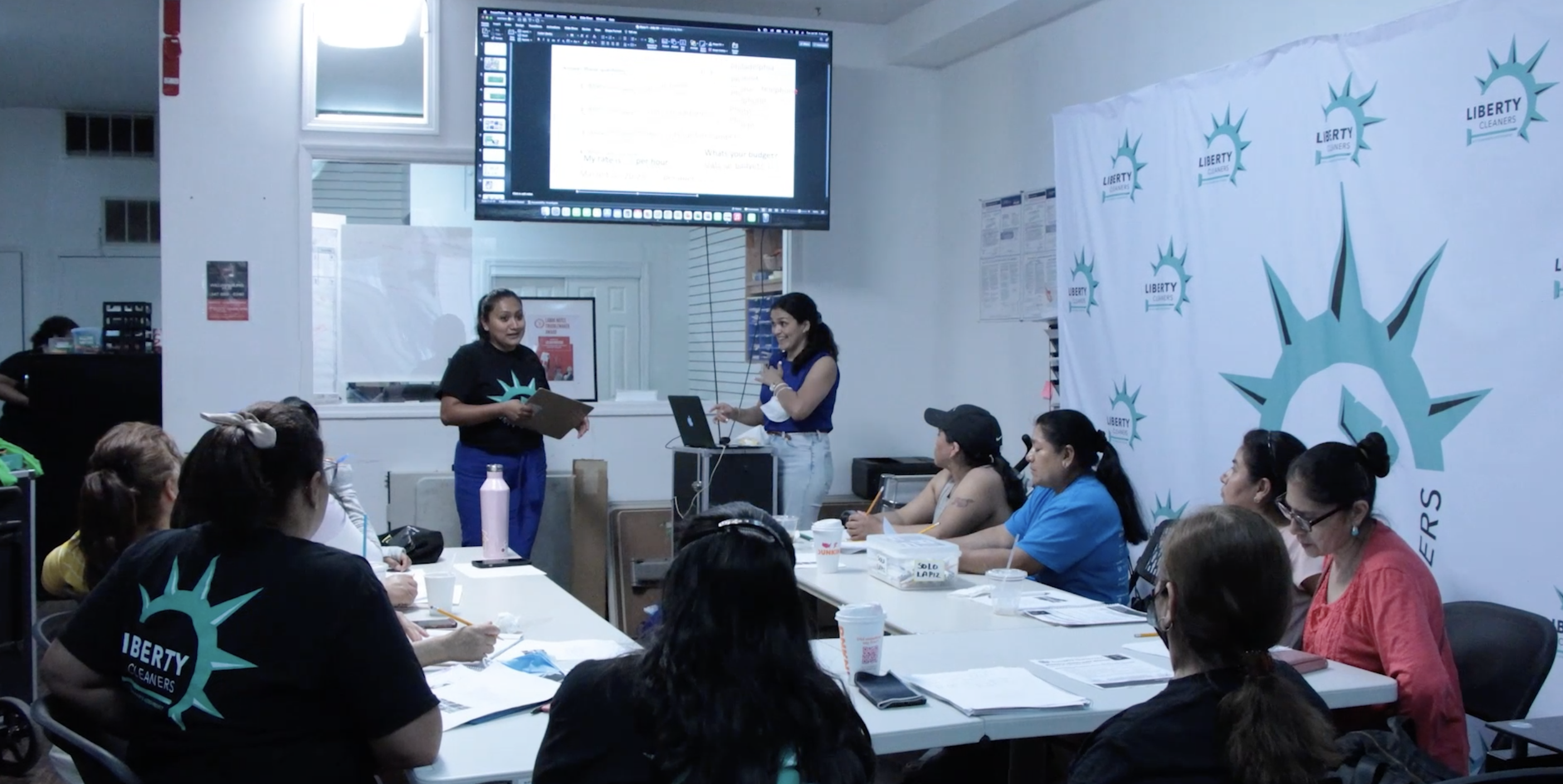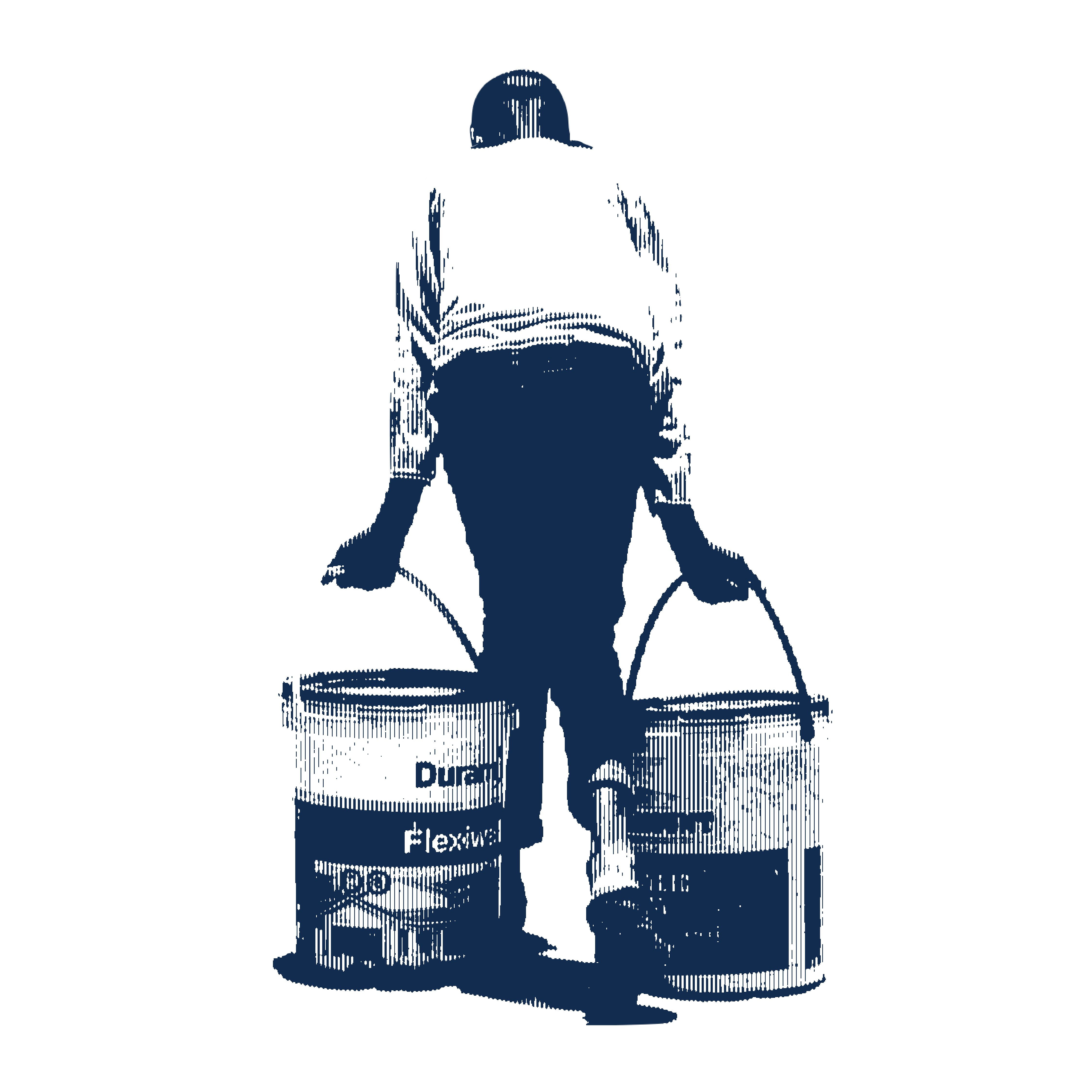Video Transcript
Every day, stories of labor exploitation against undocumented, many of them Latina, women occur in New York City.
Some stories involve working long, hard days for low pay, or sometimes even without pay.
This was indicated by employees interviewed in Brooklyn, who refrain from filing formal complaints for fear of reprisals.
For years—every morning—they have gathered for work at La Parada, on the corner of Marcy and Division Streets, in Williamsburg, Brooklyn.
Their goal is to be hired to go clean up a neighborhood home or office, often content with receiving between 8 and 12 dollars an hour, even though the minimum wage in New York State is $15 an hour.
At first sight, these are shy women, but their working condition has gradually improved. This change has been influenced, among other factors, by the Labor Justice Project, a nonprofit organization known as Liberty Cleaners.
A group of women stopped going to La Parada and now meets nearby on 365 Broadway Street in the organization's offices.
There, they receive training in different areas such as the right to receive $15 per hour, as established by the New York State Department of Labor, regardless of immigration status.
In the offices, activists distribute a pocket booklet called “A House Cleaner's Guide for Better Working Conditions,” which reads: “Get paid for your work. If you don't get paid, contact your local workers' center or the New York State Department of Labor at 1-888-469-7365.”
The construction of this community has empowered the cleaning workers. An example of this is Elidia Pérez Lucero, from Mexico, who remembers that she worked in a hotel without receiving wages.
Since she is undocumented, and feared being deported, she had not denounced her bosses. However, in 2018 someone told her about Liberty Cleaners, and she went to seek help.
“I came to this place because of a wage theft. I was working in a hotel, which they didn't want to pay because they said I was undocumented. Then, I learned about the organization, I went (to Liberty Cleaners) and got my check,” recalls Pérez Lucero with pride.
"This is where I have learned to defend myself, to lose fear of the worker, to try to get a better salary," she adds.
According to a May 2021 report from the U.S. Bureau of Labor Statistics, there are 33,630 people working as maids and housekeepers in the New York City metropolitan area.
One of the goals that training centers like Liberty Cleaners seek is to remove the stigma of calling them “domestic workers.”
Instead, these women struggle to be known as cleaning workers to make their jobs dignified.
In this center, in addition to learning on their labor rights, women take English classes twice a week where they practice the basic vocabulary to communicate with employers.
The center also offers a course on making ecologically friendly and non-toxic products such as a cleaning paste to replace harmful chemical cleaners regularly used in the industry.
The group has been growing, currently serving an average of 50 women every month. These are typically women of Latin American origin living in Brooklyn or Queens, according to Maria Valdez, director of Liberty Cleaners. Valdez points out that the movement needs to be made more visible so that other women learn that they have rights and that they can demand better working conditions.
“To all the women working in the cleaning industry, I would invite them to be given the opportunity to approach our group, our organization, the Liberty Cleaners group, to know what their rights are, as well as to know that the work they are doing it's an essential job, it's a profession that they are doing and giving it value,” said Valdez.
Women pay an annual membership of $50 to receive cleaning and English courses, as well as painting and other arts workshops. They also receive technological training to be hired by employers through mobile applications.
Female employees have been forming a community that seeks to empower and dignify itself, especially after it was so helpful during the COVID-19 pandemic, when they were unable to seek federal support.
During a ceremony in July 2022 at the Workers Justice Project offices in Brooklyn, the employees received a diploma for their efforts from New York State Senator Julia Salazar, who represents District 18, which includes Williamsburg.
Senator Salazar’s speech to the women was interpreted by Hildalyn Colon Hernandez, the center’s director of policy and strategic partnerships. Hernandez said, Senator Salazar "says that what you are doing as a group is an effort not only individual but also collective, that you are changing the world.”
Salazar recalled that during the pandemic state senators managed to allocate state resources to organizations that support groups of employees who lack government benefits, although she admitted that more resources are needed.
“Last year in 2021, for example, at the state level in the State budget we created the excluded workers fund to make sure that workers, particularly those who are undocumented or worked in the informal economy who were excluded from the unemployment benefits or other benefits during the pandemic that they were actually received the benefits from the State here in New York,” she said.
Another goal, she added, is to give visibility to the rights of cleaning workers and employees in general in other service industries who continue to be victims of exploitation and discrimination because they do not know their rights or because they have no voice in Congress.
The Workers Justice Project signed an agreement with the State University of New York through which women workers receive training in technology to use applications to receive payment from their employer or to use some instruments in the homes where they work.
Juana Camacho, who has been coming to La Parada for eight years said of the center, “I’m learning from the workshops they give, from the English workshops, how to manage myself, how to use the technology that is now advanced, how to send an email.”
Another cleaning employee who has seen progress is Merced Aguilar, a native of Mexico, who said, “I have eight years working in the cleaning industry and for me when I did not know the Labor [Workers] Justice Project, my conditions were not very good. I went [to take] trainings, I took an English course, and we came to form a group, a group that is Liberty Cleaners and we meet the first Monday of each month to better the working conditions and have a better salary.”
This movement has been gaining strength. As they are creating a community, the cleaning workers have been assuming a political consciousness to mobilize their voices, says Dr. Lara Alonso, who investigated the empowerment of this group of women as part of her doctoral thesis at the Graduate Center of the City University of New York.
“What I studied in my dissertation is how a group of people come to see themselves as a community and then what they do in order to not only be a community but become a political subject, a political subject that mobilizes its voice to fight politically for its own objectives,” said Dr. Alonso.
These women’s struggle to dignify their work and achieve labor justice has gained ground, but more visibility is needed for other women to join in demanding their rights, too. As the cleaners say, the fight goes on.











